Is learning a new language good for your brain? What if I told you that with just 5 years of language learning, you can transform your brain forever?
If you're wondering what magnificent mental muscles these workouts will unlock, I have eleven incredible things to show you!
Want to reshape your brain? All you need is a language you want to learn. Let's explore the fascinating ways language learning transforms your mind.
Pro Tip
By the way, if you’re serious about improving your language skills, online language courses for fluency can make a huge difference.
I'm offering top-rated online language courses for beginners to advanced learners, covering Mandarin, Spanish, French, Italian, German, Japanese and more.
If you’ve been looking for a story-based online course to learn languages, this is your chance! Get a free 7-day trial of the course of your choice.
If you prefer watching videos to reading, hit play on the video version of this post at the top of this page. Otherwise, here's what you'll discover in this article:
Table of Contents
Brain Benefit #1: Makes You Happier

You have these two little ‘happy chemicals' in your brain: dopamine and serotonin. One gives temporary pleasure; the other gives long-lasting happiness.
Basically, anything that's fun will trigger a dopamine release. If you've ever wondered why gamey language apps are so addictive – it's because of dopamine! Each time you get something right, it feels good – and that's a dopamine hit you're feeling.
Only problem is, the feeling doesn't last, and this is how addiction gets you. You want more, so you go back to the game and avoid taking a real lesson, which is harder!
Do you need dopamine? Of course – we all need it. But the downside is dopamine doesn't change the way you feel about yourself inside.
It can't give you confidence, and the one thing you need most to go out and start speaking your new language is confidence!
Enter serotonin. Serotonin is in charge of your internal good feelings. In language learning, serotonin increases when you get to the genuine success part.
The day you actually go out there and have a conversation with a native speaker, and they understand you, and it flows – you walk away feeling really good about yourself.
Even if you were terrified! Because you did it. You actually talked! And the next day, you still feel good about yourself.
Serotonin activities don't give you a huge rush at the end and they're harder to do, but the feeling lasts because instead of just constantly levelling up, you actually learn how to speak a language for life!
Brain Benefit #2: Emotional Intelligence
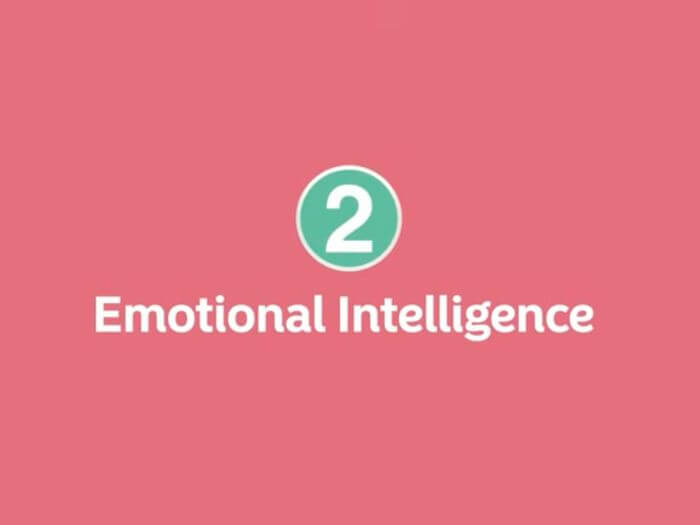
Believe it or not, we need to feel our negative emotions to successfully learn a new language! We need the full spectrum – the good emotions and the bad ones – or we stop learning.
Your first language is the one you learned around your family, and there was a lot of emotion involved. It was normal life, it was informal, everyone was being real. But the language you're learning now? Probably not quite the same level of real.
Thing is, emotion is an essential tool to jump ahead quickly, and learning a language in an everyday life setting makes you learn a lot faster. So if you can create an environment where you feel normal feelings, things are going to speed up for you.
Over 5 years, chances are you'll speak to native speakers, maybe travel to their country. Those everyday emotions start showing up, and you can experience the language in all its colours!
The brain benefit? Integrating with and understanding a new culture will increase your empathy and emotional intelligence – emotional intelligence experienced through a new language!
Brain Benefit #3: Heal Trauma
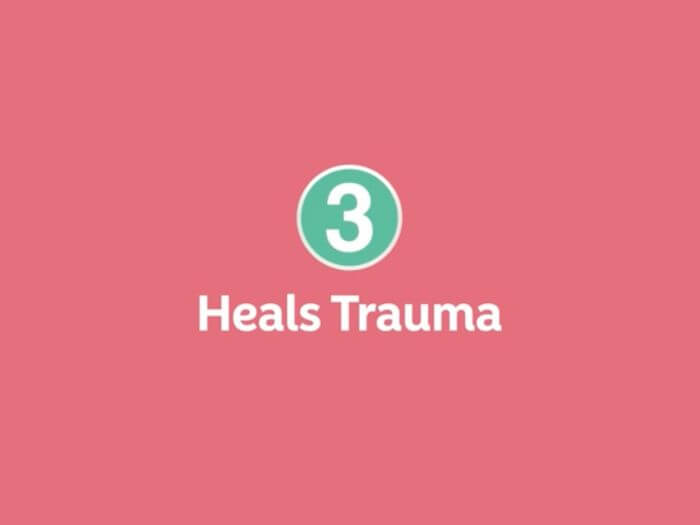
Here's a fascinating discovery: if something traumatic happened in your past, your brain doesn't link that event to the new language you're learning. Why would it?
When your feelings about something are very strong, or you're feeling vulnerable, it helps to create a bit of distance by using a second language to talk about it. This is powerful stuff!
You should try it – write down your feelings in the language you're learning, instead of in your first language.
This also fits with the “wake up fluent” phenomenon. The basic idea is: if something happens where you damage the part of your brain that knows English, your brain searches for another way to communicate.
And if you know any other languages, there's a good chance you'll be able to access them! Cool, right?
Brain Benefit #4: Better Focus
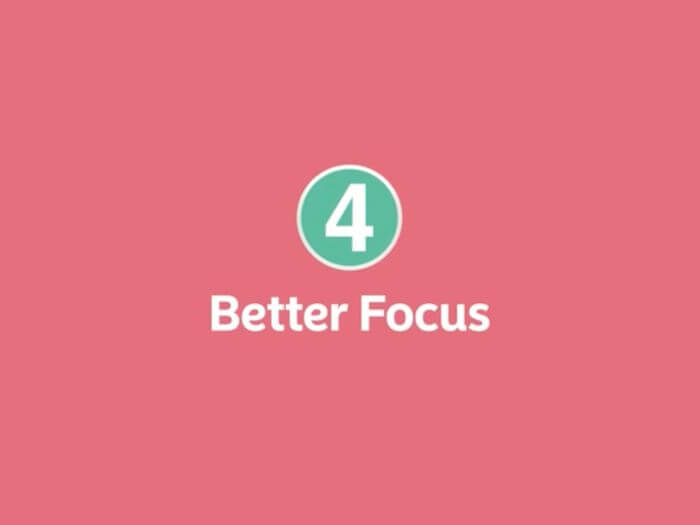
Wouldn't you love to learn the self-discipline to laser focus? While you're speaking your second language, your brain is suppressing your first language. You can't help it, and it's amazing.
Every time you have a conversation, you're forcing your bilingual mind to detect which language it's hearing and choose the correct language and words to use. And it's constant.
Is it a dog or a chien? Gym or jimu? Flight or volo? Your brain actually tries hard to block English so that you can remember the French or Japanese words instead.
It's called “language inhibition.” If your brain didn't do this, it would be impossible to keep languages separate. It would all just be a big mess.
It's proper mental exercise – the equivalent of taking your brain to the gym! Bouncing back and forth like this is also brilliant for sharpening your decision-making skills. Your overall attention span improves, and you can focus more easily.
Then your beautiful brain gets better and quicker at switching between any tasks and filtering out information you don't need.
So if you're busy learning another language, why not kick it up a notch? Try to block your native language completely – no subtitles, no translating, no mixing languages. The more fluent you get, the closer you come to concentration ninja status!
Brain Benefit #5: Hear More Sounds
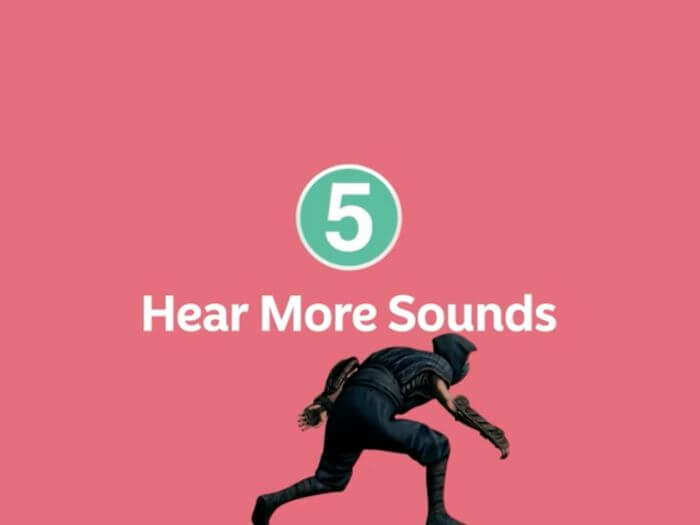
Ever heard a Japanese person struggle with the difference between R and L? Us English speakers struggle too! Try the sound between P and B, or tricky German sounds. We have to rewire our brains for this!
But there's a reason behind it all. Babies under 6 months can hear all of these sounds, no problem. The whole spectrum of phonemes – they hear them!
Any bilingual babies out there? This is why it's super easy for you to automatically separate two sets of sounds, rhythms and timing.
Problem is, after your first year of life, you started filtering out sounds you didn't need to speak your native language, and pretty much lost the rest.
Your brain got hardwired to the sounds of your first language, so now you hear all other languages through that filter.
The good news is the more years you spend learning languages, the more your ears tune in to these secret sounds, and you can become really good at perceiving subtle sound differences. It's fantastic sound training for your ears! Like a musician, absolutely.
If you want sharper listening skills, here's a little tip from babies: try watching the mouths of native speakers to see how they form the strange sounds!
Brain Benefit #6: Perception of the World
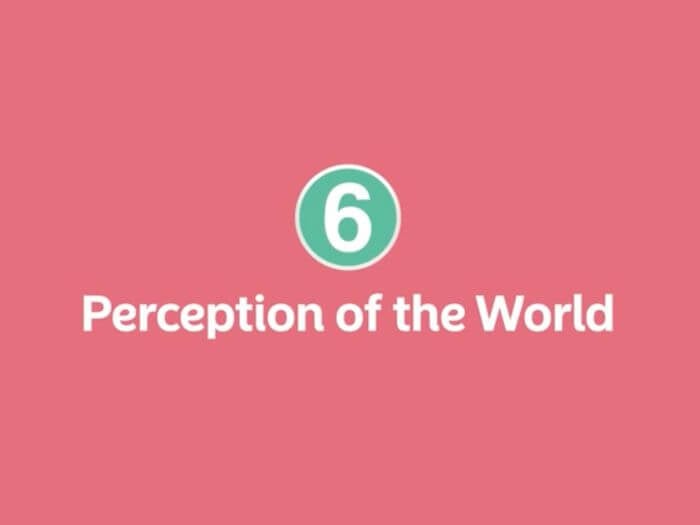
Language can affect our most basic senses and perceptions. Mandarin speakers often see time vertically; the Aymara people map the past as in front of them; and Russian kids learn two completely different colour words for blue!
Can learning languages change the way you perceive the world? Yes, in many ways. Languages aren't even equal when it comes to what words mean, and there seem to be a lot of missing words between languages.
English doesn't have a word for many exact feelings that exist in other languages. And the English word for love? Come on, we're starving for more descriptive love words!
I love my family, I love my cats, I love my whiskey. “Love” is the only word we have in English – which is weird, because they're different kinds of feelings! So when you learn Spanish, you end up thinking of love in a whole new way.
Brain Benefit #7: Longevity
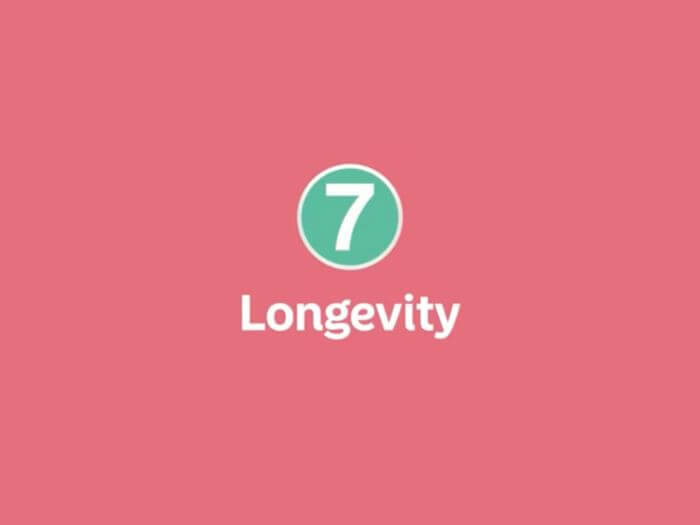
It's sad, but a fact of life: any part of your brain that you don't use starts to wither, especially as you age. One of our biggest fears is losing our memory, right?
One thing you forget is languages, so you need to use that part of your brain. If you keep learning languages, your brain gets better at protecting itself against the losses.
But learning a new language also improves memory. In fact, it makes certain brain areas increase in size.
Your brain can even grow new neural networks, which leads to the best part: brain functions can actually move from a damaged area to an undamaged area. A brain that knows a second language has potential to recover faster.
If all this sounds like a pretty sweet deal for your later years, it is! You're keeping different parts of your brain active as you age – parts it wouldn't normally use. And that's the secret.
So what can you start doing now? Don't ever tell yourself you are too old to learn a language. That's just silly. I don't care if you're 105 – treat your brain to an exciting new language!
Brain Benefit #8: Makes You More Creative
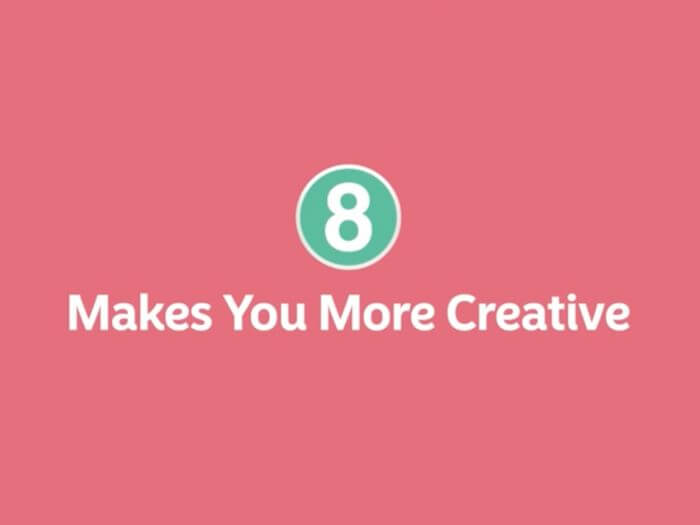
Learning a new language makes you good at thinking outside the box. And that's some cool creative skills right there!
Every language learner faces this dilemma sometimes: being completely stuck for words. Everyone. You know what you want to say, but not in that language. The problem is that in some cultures, they describe things very differently.
So when you're not sure, you often have to find other ways to say something. When faced with a native speaker, your brain is really firing to get creative!
This experimenting teaches your brain that it's okay to have a bit of freedom when you're figuring things out. And the 5-year result? You learn to be great at coming up with multiple solutions to a problem!
Brain Benefit #9: Make Rational Decisions
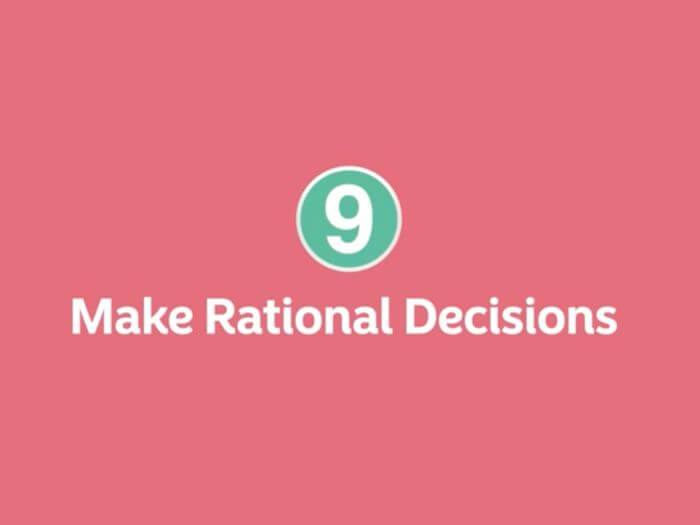
This is so interesting. When you're very emotional, it can be tough to make the right decision – your brain knows how to manipulate your thoughts! But wouldn't you make the exact same decision in a foreign language?
American researchers say that you don't always, because when you think in a second language, you emotionally distance yourself from your memories.
In fact, thinking in a new language can even help you avoid false memories i.e a memory of something that never happened, but that seems just as real as a “true” memory.
Along with your real memories, any false memories are attached to your native language, and your brain isn't fooled by them once you switch languages! Apparently, this is a brilliant brain hack for critical thinking skills.
When you're thinking in a foreign language, there's less bias going on in your head, so you're more analytical, less emotional, and it's easier to make decisions.
So there you go – use your second language as a kind of mental shortcut to skip to the important stuff. Next time you have to make a big decision, try thinking about it in your second or third language.
Brain Benefit #10: Makes You Smarter

Multilingual brains look and work differently than monolingual ones. How come? Well, the reason is simple enough: apart from all the new sounds and words, grammar is a complex little monster.
When you force yourself to think about a brand new type of grammar and how to untangle the convoluted mystery, this is uncharted territory for your brain, and it has the awesome side-effect of making you smarter overall.
But how does your brain look different? First, it's where you store the new language. Children who learn a second language early on store it together with their native language while in adult learners it's saved in a different area of the brain.
So something new is activated if you learn a language as an adult. Cool! But that's not all. Multilingual brains have some visible advantages such as higher density of the gray matter that contains most of your brain's neurons and synapses and more activity in certain regions when engaging a second language.
A Swedish Armed Forces interpreter Academy did a study where students were tasked with learning a language at a very fast rate. MRI scans were showing that specific parts of the brain were developing in size just because they were learning a language.
The punchline is: they did the same test on another group learning something completely different, and their brains didn't change in size. So it was the languages! Your brain can actually change its physical structure. A lifetime of speaking two or more languages gives you very big mental muscles!
If you want to support your own neuroplasticity while you learn a language, try this:
- Eliminate all the distractions so you can focus
- Be realistic about your goals – don't tell yourself you'll be fluent in 6 weeks, you won't!
- Don't study for more than 90 minutes at a time and have lots of rest periods doing absolutely nothing, not even thinking
- Always get a good night's sleep
Sounds simple, but these can be very powerful for language learning. Let yourself go on the adventure!
Brain Benefit #11: Easier To Learn Language Number 3

Once you've learned a second language, your brain is on fire! It now knows how to learn another language as an adult, and it will more easily accept weird new words as “normal.”
There's this thing called metabilingual awareness, where your brain learns to easily adjust to different types of language patterns.
Now when you get to learning a third language, even if it's super hard and the rules are different, it will feel less alien.
If you want to test your growing sophistication in languages, have a laugh at yourself – try inventing bilingual jokes, and then we're back to brain benefit number one!
Is Learning A New Language Good For Your Brain? FAQ
Does learning a new language improve your brain?
Yes, learning a language strengthens memory, problem-solving and multitasking skills. It also helps keep the brain active and may delay age-related decline.
What is the best language to learn for your brain?
Any new language challenges your brain, but languages very different from your native one, like Chinese or Arabic, give extra cognitive benefits. The best choice is the one you’ll stay motivated to learn.
Is learning a language good for mental health?
Yes, language learning can reduce stress, improve focus and boost confidence. It also gives a sense of achievement and connection with other cultures.
The Bottom Line: Is Learning A New Language Good For Your Brain?
So which languages are you going to go for? If this is your first rodeo, maybe start with an easier one.
The key is to start somewhere and give your brain the incredible gift of language learning. Your future self will thank you for it!

Olly Richards
Creator of the StoryLearning® Method
Olly Richards is a renowned polyglot and language learning expert with over 15 years of experience teaching millions through his innovative StoryLearning® method. He is the creator of StoryLearning, one of the world's largest language learning blogs with 500,000+ monthly readers.
Olly has authored 30+ language learning books and courses, including the bestselling "Short Stories" series published by Teach Yourself.
When not developing new teaching methods, Richards practices what he preaches—he speaks 8 languages fluently and continues learning new ones through his own methodology.









































